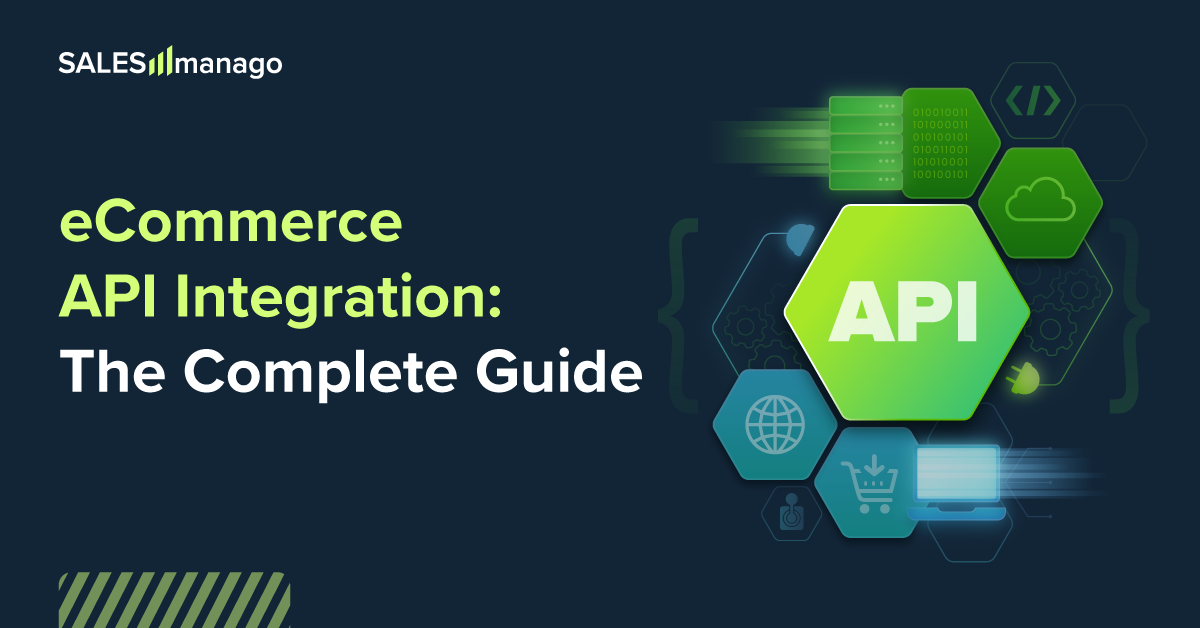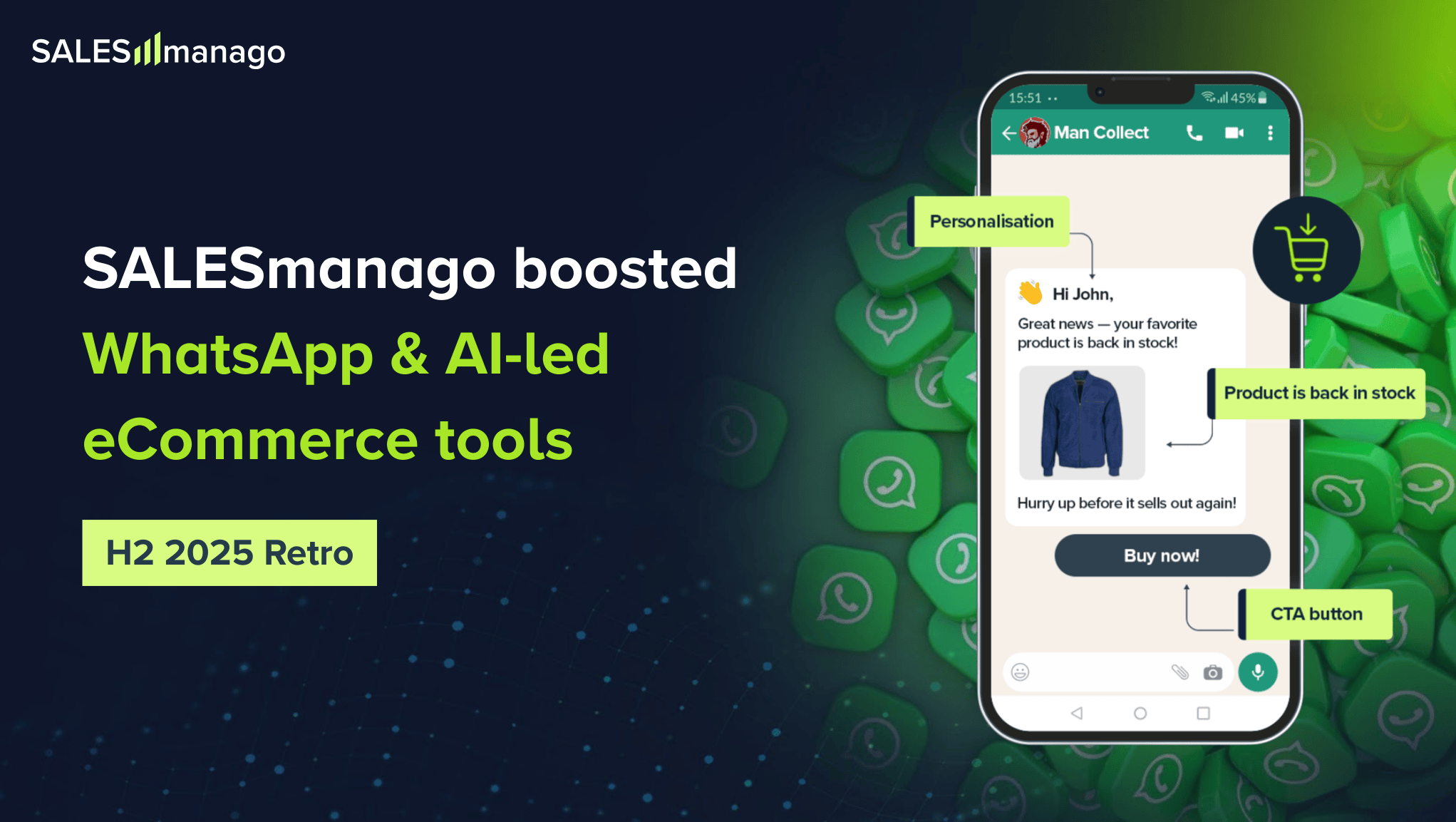
In 2026, building momentum quickly is everything. For ambitious startups, a modern marketing automation platform is the multiplier. These systems help you send the right message at the right time, reduce repetitive work, and turn leads into customers without burning out your team. We'll explore ten tools that move you beyond basic email to personalised, unified customer journeys. For impact-hungry marketers, the question is not which tool saves time, but which platform can strategically guide and accelerate predictable revenue.
What are Marketing Automation Tools?
Marketing automation tools for startups are software platforms that automate repetitive marketing tasks so you don’t have to do them manually. Instead of typing every email, scheduling each post by hand, or chasing follow-ups one by one, these platforms let you set up rules and flows that react to what people do. They often handle email sequences, lead nurturing, segmentation, simple CRM tasks, and basic analytics.
Many marketing automation platforms connect to your website, CRM, and eCommerce store to capture user behaviour and trigger messages based on actions like signing up, abandoning a cart, or clicking a link.
At their simplest, these marketing automation systems save time. At their best, they leverage a unified Customer Data Platform (CDP) foundation to personalise experience at scale: they treat hundreds of leads like they are the only lead, by sending offers and content based on each person’s behaviour. For a startup, that means better follow-up, fewer lost opportunities, and the ability to test ideas quickly without hiring a big marketing team.
Why Startups Need Marketing Automation?
Startups need marketing automation because early teams must deliver disproportionate results from limited resources. When you’re juggling product development, customer support, and fundraising, it’s hard to also manage timely, consistent outreach. Automation keeps lead nurturing moving even when founders are stretched thin. Instead of missing a follow-up or letting a trial user go cold, the system does the routine work and passes warm leads to your sales team.
Marketing automation also creates structure. It forces you to think about customer journeys, define triggers, and measure outcomes. That data is gold because it shows which messages convert, what content resonates, and where people drop off. Automation creates the structure and data traceability needed to implement a measurable Growth Framework, guiding your business from an Emerging Shop to a Scaling Store. Startups that use marketing automation platforms get faster feedback loops and can iterate marketing experiments in hours instead of weeks. And because a number of these tools are priced for growing businesses, they’re affordable ways to scale without doubling headcount.
How to Choose the Right Tool for Your Startup?
Choosing among marketing automation tools for startups is less about brand names and more about fit. First, list the outcomes you want: more leads, higher trial-to-paid conversion, lower churn, or better engagement. If email sequences are your priority, pick a tool strong on email automation and deliverability. If you sell online, choose a platform with tight eCommerce integrations.
Next, think about integrations. Your marketing automation platform should play well with your CRM, analytics, and payment systems. If your sales team already uses a CRM, look for CRM automation tools that connect seamlessly. Usability matters too; simple visual builders save time for non-technical teams, while advanced users may want scripting or custom logic.
Future-Proofing & AI Capabilities is also essential. Does the tool embed Generative AI for content, or predictive AI for targeting? Choosing an AI-powered Customer Engagement Platform ensures you invest in a solution that grows with technological complexity.
Budget and scalability are important. Some marketing automation platforms charge by contacts, others by features or events. Forecast growth and check pricing tiers so you don’t get surprised when your list doubles. Finally, test the tool. Use a trial or pilot to build one real workflow and measure results. That practical test reveals more than glossy demos.
The 10 Best Marketing Automation Tools for Scaling eCommerce Startup in 2026
There’s no single “best” platform for every startup, but there are several marketing automation tools for startups that repeatedly show up in smart teams’ stacks. Below are ten options that cover different needs: all-in-one platforms, email-first tools, and specialized eCommerce solutions. We'll highlight what each one does best so you can match it to your stage and priorities.
1. Salesmanago
Salesmanago is a full-featured marketing automation platform that mixes personalisation, omnichannel messaging, and AI-driven recommendations. It is a solution designed to unify marketing, sales, and service data into a single ecosystem, moving clients through proprietary Growth Framework. The platform provides a full range of omni-channel messaging and advanced web personalisation based on a unified customer profile. A core feature is the embedded AI Sidekick, an assistant that empowers marketers to rapidly generate content, suggest segments, and construct sophisticated workflows. Choose SALESmanago if you need a single, unified platform that treats your growth as a genuine partnership, moving you confidently through your scaling journey.
2. HubSpot Marketing Hub
HubSpot Marketing Hub remains a user-friendly, integrated option that combines marketing automation with a free CRM. It’s great for startups that want an easy-to-learn tool with clear reporting and solid inbound marketing features. HubSpot’s visual workflows let non-technical people build multi-step campaigns, and it’s especially helpful when marketing and sales need to share lead data seamlessly. For early teams focused on content and lead nurturing, HubSpot provides a gentle learning curve and an ecosystem that grows with you.
3. ActiveCampaign
ActiveCampaign scores for startups that need strong email automation and smart segmentation without a steep learning curve. It balances power and simplicity with conditional flows, split testing, and behaviour-based triggers that can scale as your user base grows. Teams that depend on drip sequences and personalised outreach often pick ActiveCampaign because it’s affordable and gets sophisticated quickly as you need more automation depth.
4. Brevo
Brevo (formerly Sendinblue) is a pragmatic platform that bundles email, SMS, simple CRM, and transactional messaging. Its interface is straightforward and it offers cost-effective plans for growing lists, which makes it ideal for startups that need multi-channel messaging without a complex or expensive setup. Brevo’s automation workflows are easy to implement, and because it handles transactional messages and marketing in one place, early-stage businesses can consolidate tools and save time.
5. Mailchimp
Mailchimp is widely known and still a popular option for startups that want fast setup and creative templates. It has evolved beyond basic newsletters into a broader marketing automation platform with customer journeys, retargeting ads, and simple predictive insights. For very early-stage teams that want a friendly interface and rapid execution for email campaigns, Mailchimp’s low barrier to entry and template library are definite advantages.
6. Klaviyo
Klaviyo is designed for eCommerce startups that need deep data integration with stores and shopping behaviour. It pulls in order history and browsing activity, then uses that data to trigger highly personalised emails and flows that improve repeats and lifetime value. If your startup is selling online and you care about revenue-per-email metrics, Klaviyo gives you the tools to track and act on buyer behaviour in a very revenue-focused way.
7. Zoho Marketing Plus
Zoho Marketing Plus is part of a larger suite of Zoho products and offers a budget-friendly way to manage campaigns, social media, and analytics together. It’s flexible, customizable, and ties into Zoho’s other tools if you use them for CRM or sales. Startups that need an affordable, all-in-one solution and want to keep costs predictable often find Zoho’s approach appealing.
8. Marketo Engage
Marketo Engage is a powerhouse aimed at growth-stage companies that need enterprise features. Although it’s more advanced, some startups that expect rapid expansion choose Marketo early because it can handle complex B2B journeys and sophisticated lead scoring without forcing a platform change later. Marketo’s analytics and campaign orchestration are strong, but it’s better suited for teams with some marketing operations experience.
9. Drip
Drip blends eCommerce focus with CRM-style automation. It helps startups create targeted flows based on product interaction, site behaviour, and purchase history. Drip simplifies customer lifecycle tracking for stores and offers clear tools for building loyalty and repeat purchases. If your product is sold online and conversion optimisation matters, Drip is a practical choice.
10. GetResponse
GetResponse is a flexible tool that mixes email marketing, landing pages, and marketing automation into an approachable suite. It’s particularly useful for startups experimenting with funnels and conversion optimisation because it includes the building blocks to run campaigns end-to-end. Its workflows are straightforward and the platform is priced to be accessible for small lists that are growing.
What Mistakes Should Be Avoided When Using These Tools?
Even the best marketing automation tools for startups can backfire if used poorly. One common mistake is sending automated messages that feel unauthentic. If you automate everything without care, your audience will sense the lack of human touch. Another error is ignoring data hygiene: Old or duplicated contacts will inflate costs and skew metrics. Some teams also overcomplicate flows before they master the basics; complicated automations are harder to maintain and trouble-shoot when something goes wrong. It’s also a mistake not to align sales and marketing: automation that isn’t connected to sales processes creates handoff gaps and wasted leads. Finally, startups sometimes chase features instead of outcomes, subscribing to expensive tiers for capabilities they don’t actually need. Keep it simple, measure impact, and iterate.
Maintaining clean data and accurate documentation across your operations is critical. Many startups rely on external contractors or distributed teams, so keeping payroll and verification records organised becomes part of overall system hygiene. Tools like Real Check Stubs can help generate compliant, structured pay-stub documentation that keeps financial records consistent.
How to Successfully Implement Marketing Automation in Startups?
Successful implementation of marketing automation for startups starts with clarity about goals and a slow, practical rollout. First, map the most important customer journeys. What should happen when someone signs up, when they start a trial, or when they abandon a cart? Build a simple workflow for one high-impact journey and measure the result.
Next, ensure your data is tidy. Accurate email addresses, agreed tagging conventions, and clean CRM records make automation reliable. Train the team so everyone understands how leads move through the system and who owns each stage. Keep messaging personal: use dynamic fields, short personalised text, and thoughtful timing so messages don’t feel automated.
When scaling, document workflows and keep naming conventions consistent so you don’t lose track of what each automation does. Regularly review performance and prune flows that underperform. And integrate wisely: link your marketing automation platform to analytics, billing, and chat so you get a full picture of customer interactions. If you use customer support channels and tools, connect them to your automation so messages reflect service status and customer sentiment, which creates a smoother experience for users.
Future Trends in Marketing Automation
The next wave of marketing automation platforms will centre on smarter AI, deeper omni-channel experience, growth playbooks baked into tools, and privacy-first data handling. AI will take on more decision-making, omni-channel engagement will become essential, and growth frameworks will guide action from day one. Privacy and compliance will shape how data is collected and used, and startups that pay attention will keep customer trust while staying efficient.
AI and Smart Decisioning
AI assistants are changing how teams decide what to do next. Instead of manual analysis, these assistants summarize patterns, suggest subject lines, predict best send times, and even propose segmentation strategies. For startups, an AI assistant becomes a kind of virtual marketing cofounder, offering suggestions that save time and help avoid common mistakes. These AI helpers reduce guesswork and speed up experimentation, letting small teams run more tests and find what works faster.
Omni-channel Engagement in Marketing Automation
Omni-channel engagement means customers see a consistent experience across email, SMS, chat, social, and web. In the near future, more marketing automation tools will let you build flows that move between channels seamlessly. That matters because people switch devices and platforms, and a message that starts as an email can be followed by an SMS reminder and then a personalised web banner. For startups, orchestrating these touchpoints can increase conversions without multiplying the team’s workload.
Growth frameworks built on automation and analytics
Growth frameworks combine step-by-step tactics with automation and analytics so startups can repeat what works. These frameworks embed processes like scoring leads, activating trial users, and re-engaging churned customers through automated sequences that are monitored and optimised. Startups adopting a growth framework benefit from a structured path to scale that’s supported by data and automation, rather than relying on ad-hoc hacks.
Privacy-first Data Management
With tighter regulations and more skeptical users, privacy-first data management is now essential. Future marketing automation systems will focus on minimal data collection, transparent consent flows, and easy data management for users. Startups that adopt privacy-first practices will avoid fines and build credibility, which is especially important when you’re asking people to trust a new brand.
Tracking Results and Optimising Your Marketing Automation Strategy
Tracking is the stage where marketing automation tools for startups reveal their true impact. Once your campaigns are running, you need to measure, analyse, and refine them to ensure that automation continues to deliver value. The goal is to turn data into smarter decisions and steady growth rather than relying on guesswork. Here are a few key strategies to help you track results effectively and optimise your marketing automation over time.
Define the right KPIs
Start by identifying the performance indicators that align with your business goals. Whether it’s trial conversion rate, demo requests, retention, or lifetime value, focusing on the right numbers helps you understand what truly drives success.
Run controlled experiments
Test one variable at a time, such as subject lines, timing, or calls to action. Measuring these small tweaks shows what influences engagement and helps you make incremental improvements that compound over time.
Audit and refresh workflows
Periodically review your automation sequences to remove outdated or redundant flows. Updating campaigns keeps your messaging relevant and ensures you aren’t wasting resources on interactions that no longer fit your audience’s needs.
Keep documentation clear and shared
Well-documented automations make it easier for team members to understand how campaigns work and why they exist. This prevents confusion, speeds up onboarding, and helps maintain consistent messaging even as your startup grows.
Adopt a mindset of continuous optimisation
Optimisation isn’t a one-time task. As your market evolves and customer behaviour changes, keep testing and adjusting. Regular review sessions help maintain alignment between your automation, your audience, and your product’s latest direction.
Conclusion: Your First Steps to Automated Growth
Marketing automation is not merely a tool; it is a growth multiplier. It lets small teams scale outreach, personalise at scale, and learn quickly from real user behaviour. However, adopting it successfully hinges on strategy, not just software.
Here is the essential advice for every startup owner considering their first platform:
1. Prioritise the Foundation Over Features
Your initial goal should not be deploying the most complex, multi-channel workflow. It should be building a clean, unified data foundation (a simple CDP). Automation is only as good as the data that fuels it. Ensure your chosen platform integrates tightly with your eCommerce store and CRM, allowing you to capture every piece of transactional and behavioural data. Without this, even the best tools will fail to deliver true personalisation.
2. Master One Workflow for Revenue Impact
Resist the temptation to automate everything at once. Start small, measure outcomes, and focus on the customer’s experience. Identify one high-impact, revenue-driving journey, typically the Abandoned Cart Recovery or the Welcome Series, and build it perfectly. This disciplined, iterative approach gives you faster feedback loops and builds the muscle memory needed for larger campaigns.
3. Choose a Partner Committed to Your Lifecycle
Look beyond the price tag and the feature count. The greatest mistake is investing in a platform that forces you to assemble a patchwork of tools. Choose a platform that combines AI, omni-channel messaging, and a structured approach to growth. Your goal should be to partner with a solution designed to guide you through your entire scaling journey without forcing costly migrations as you grow.
Ready to pick the right platform for your startup? Start small, measure impact, and focus on the customer’s experience.
Latest posts

We Are Facing An Age of Agentic Commerce. This Is How The Industry Will Change in 2026
As everyone in 2026 now, marketers all over the world are trying to answer one question: How will the eCommerce industry change in 2026? Because it will change, that is certain. 2025 was a year of a half-baked revolution. We witnessed the unprecedented rise of AI tools of all sorts: for coding, wri...

eCommerce API Integration: The Complete Guide
If you’re Googling ecommerce API integration, you’re not doing it for fun (well, maybe ecommerce API integration is your idea of fun… no judgement). But seriously: you’re probably trying to make your store talk to the rest of your stack, ERP, OMS/WMS, support, analytics, marketing automation, so that sweet, sweet data flows automatically and your tea...

SALESmanago ramps up AI and messaging tech to redefine eCommerce marketing in 2026
New capabilities empower marketers to craft personalised WhatsApp templates, automate customer experiences with AI, and deploy dynamic CTAs that boost engagement and revenue
